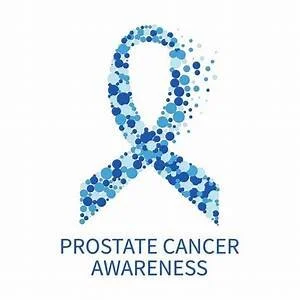It may be October, but it’s not too late to give a shoutout for Prostate Cancer Awareness Month (technically in September). My work with nutrition and prostate cancer began over 20 years ago when I was hired to create and run the nutrition program for the UCSF Helen Diller Family Comprehensive Cancer Center. Dr. Peter Carroll, professor and chair of the department of urology at UCSF, was one of my greatest supporters and eager for his and all prostate cancer patients to implement a healthy nutrition plan. Given his support, one of my primary goals was to learn as much as humanly possible about the connection of nutrition and prostate cancer.
On a personal note, my dad, one of the very best on the planet, was diagnosed with prostate cancer in 2006, metastatic prostate cancer in 2008. I have no question that a combination of his diet, medical treatments, and mindset have helped him manage his cancer for the past 14 years. He is now in hospice care and I'm so grateful to be home with my family sharing this special time together.
A healthy diet may reduce the risk of developing prostate cancer and possibly prevent or delay prostate cancer progression. Good nutrition also reduces the risk of developing other major chronic diseases, such as diabetes, obesity, hypertension and heart disease. It is estimated that one-third of cancer deaths in the United States can be attributed to adult dietary habits. Scientific evidence suggests that differences in diet and other lifestyle behaviors, such as exercise and smoking, may account for much of the variability in prostate cancer incidence and mortality in different countries.
Emerging science indicates that a lifelong commitment to a plant-based diet may lower a man’s risk of developing prostate cancer and, after prostate cancer diagnosis, reduce the risk of cancer recurrence or progression. Preliminary evidence suggests that dietary and lifestyle changes are associated with a decrease in PSA and prostate cancer cell growth in men on active surveillance for low risk prostate cancer. One study assessing the risk of recurrence of prostate cancer found that a plant- based diet, in combination with stress reduction and moderate physical activity, may slow prostate cancer progression, but these results are not definitive. PSA doubling time, a measure of risk of prostate cancer recurrence, increased from 11.9 months (pre-study) to 112.3 months (after the study), indicating slower progression. Additionally, individuals who made comprehensive lifestyle changes improved their quality of life.
Healthy Prostate Cancer Diet
Eat 8 to 10 colorful fruit and vegetable servings daily.
Two to three pieces of fruit
One serving of vegetables with every meal and snack
8 fl oz vegetable-only juice
Consume 30 to 45 grams of fiber daily.
You can meet your fiber goal if you eat 8 to 10 servings of fruits and vegetables plus one serving of beans/legumes, one serving of chia and/or flax seed (1 Tbsp), or at least two servings of whole grains daily (1 cup cooked quinoa, wild rice, or brown rice, 1 cup whole grain pasta, 1 cup oatmeal).
Avoid processed and refined grains/flours/sugars. Choose whole grains over refined grain products.
Keep WHITE off your plate: white bread, pasta, white rice, cream sauces, cakes, and more.
Eat protein with every meal; plant protein (beans/legumes, soy) at least once daily.
Limit or eliminate fatty meats (red meat, poultry with skin) and processed meats, and full fat dairy; limit low fat dairy to one serving or less daily.
Include healthy fats every day, such as cold-water fish, chia seeds, flaxseeds, walnuts, soybeans, olive oil, and avocados.
Consume herbs & spices daily.
If you choose to consume alcohol, limit to 2 drinks per day or fewer for men.
Maintain serum 25(OH)-vitamin D levels above 40 ng/ml and less than 100 ng/ml.
Drink plenty of water. Green tea and coffee (unsweetened and without high-fat dairy added) may have some health benefits.
Engage in daily physical activity. Build up to 150 minutes/week or more of aerobic exercise to achieve and/or maintain a healthy body weight.
For stress reduction, consider yoga, meditation, a support group, or other activities.
Interested in more details about nutrition and prostate cancer, click HERE.
This post is dedicated to my amazing dad, Peter Carroll, and the many prostate cancer patients I’ve worked with through the years. Please know that you all are undoubtedly some of the most motivated, diligent, and compliant patients that I could ever have hoped to work with. Thank you for striving me to learn more how to best help you and other men living with prostate cancer.

